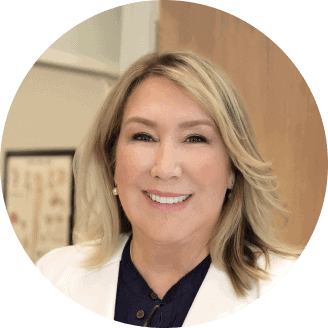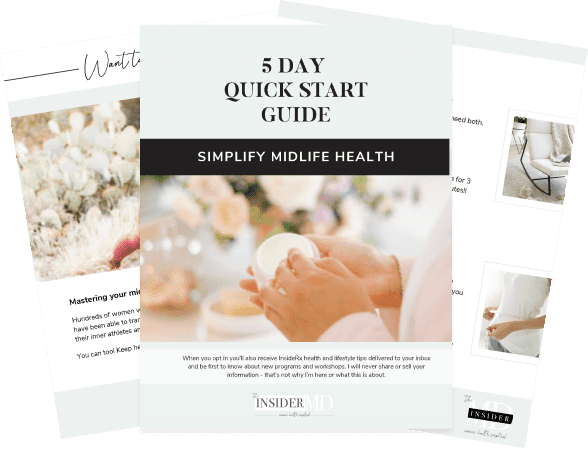
Can We Predict When Menopause Will Begin?
When will you start experiencing “the change”?
It’s something many of us wonder about, especially if you’re well into your 30’s or early 40’s. You may be thinking of having a child, expanding your family, or becoming pregnant unexpectedly. You’d love to know where you are in the fertility timeline.
Is there a way to predict at what age you’ll reach menopause?
In a word, No.
There is no sure way to know precisely how old you’ll be when menopause begins. That can be unsettling, but, as with anything health-related, awareness of what to expect as you near the transition can be helpful.
And there are several clues to help you figure out if you’re getting close.
Family History
The most important predictor of what age you will experience menopause is the age at which your mother experienced menopause. That’s because there’s a strong genetic link to menopause. You’re likely to reach menopause around the same age as your mother and, if you have any, sisters. Women with a family history of early menopause may experience early menopause themselves.
Your Age
If you’re looking for a benchmark, the average age of menopause is 51. But women can experience menopause earlier or later, throughout their 40s and 50s, too.
Blood Hormone Levels
Hormone levels can be helpful in attempting to determine where things stand but there is no one lab test that is definitive.
Follicle stimulating hormone (FSH) levels tend to rise rapidly in the two years immediately before menopause, but this is a clue, not a diagnosis.
Peri-Menopause Symptoms
Peri-menopause symptoms such as hot flashes, irregular periods, mood and sleep changes typically begin about 4 years before menopause.
But these symptoms are only a general clue because they can precede menopause by up to 7 years!
And 10% of women won’t experience any menstrual irregularity or symptoms before menopause.
General clues that can signal menopause is nearing include:
- A change in length of your period cycle of 7 days or more
- 2 or more skipped cycles
- No period for 60 days
Hysterectomy/Ovarian Surgery
Surgery that removes your uterus, but not your ovaries, usually doesn’t cause menopause. Without your uterus, you’ll no longer have periods, but, your ovaries still produce estrogen.
If you have one ovary removed, the remaining ovary might stop working sooner than expected.
But, in each case, menopause may occur 1 or 2 years earlier than average.
Prior surgery for endometriosis has also been linked to earlier menopause. That’s because with operation some of the healthy ovarian tissue gets damaged.
Smoking
Smoking does more damage to your ovaries than any other lifestyle factor. Menopause occurs one to two years earlier in women who smoke than in women who don’t smoke.
If you smoked, and you mother didn’t, you’ll probably enter menopause at an earlier age than she did.
The reverse is also true though. If your mother smoked and you didn’t, you will probably reach menopause at a later age.
Chemotherapy/Pelvic Radiation
Prior treatment for cancer with chemotherapy or pelvic radiation therapy has been linked to early menopause.
These treatments can bring on temporary or permanent menopause. That’s because chemotherapy and radiation therapy are toxic to the ovarian tissue.
BPA exposure
Bisphenol (BPA) is a chemical used to make certain plastics. Some studies show that BPA affects fertility in women.
So far, there is no specific correlation between BPA and age of menopause onset, but the research is ongoing.
Things you might think affect menopause age, but don’t.
Age at first period
Even though the average age of first period is getting younger, menopause is not also occurring earlier.
The average age of first period is now about 12 years old, down from 13 years old (prior to the 1920’s). The average age of menopause has been stable at 51years old.
So the idea that there are a fixed number of menstrual cycles in a woman’s life doesn’t seem to be true.
Pregnancy and breast feeding
There is no proven correlation between the number of pregnancies, age at first pregnancy or whether or not a woman breastfed and the age of menopause.
Birth Control
Birth control methods that stop ovulation, (the release of an egg from your ovary into the fallopian tube) don’t stop the loss of those follicles each month.
The ovarian follicles with eggs available each month will die whether or not ovulation occurs.
So birth control has no effect either way on the age at which menopause will begin.
Ethnicity: Race/ethnicity plays no role in what age women will experience menopause
What’s the Bottom Line?
Menopause is a natural transition in life that occurs, on average, around age 51. But there is no way to predict exactly how old you’ll be when it happens.
In general, you can expect to experience this change around the same age your mother did.
We know that menopause can be sped up and occur earlier, especially if you smoke, but there is no sure way to delay menopause.
Irregularity in your menstrual cycle, coupled with elevating FSH levels can be a clue that you are entering early peri-menopause.
Later we will look at some ways to manage menopause symptoms, and stay mentally and physically healthy!

MEET DR. ELLEN
My mission is to bring you the most up-to-date, proven medical information, simplified, so you can make confident, educated decisions about your health.
I'M LOOKING FOR...
grab your 5 day
quick start guide



